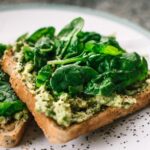Researchers from the University of Notre Dame have discovered that combining a pre-ketone supplement, a vital component of the high-fat, low-carbohydrate ketogenic diet, with a specific cancer therapy significantly enhances the treatment of prostate cancer. This finding was recently detailed in an online Cancer Research journal publication.
The study led by Xin Lu, the John M. and Mary Jo Boler Collegiate Associate Professor in the Department of Biological Sciences, alongside collaborators, addressed a longstanding challenge in oncology: prostate cancer’s resistance to immune checkpoint blockade (ICB) therapy. This type of immunotherapy, which prevents specific proteins from binding together, typically enables T cells, our body’s immune warriors, to attack cancer cells. However, this has mainly proven ineffective against prostate cancer, which remains a prevalent cancer among American men.
Sean Murphy, the study’s lead author and a 2024 alumnus pursuing his doctorate in Lu’s lab, was inspired by his adherence to a keto diet and hypothesised that reducing carbohydrate intake could inhibit cancer growth. His rationale was based on the premise that cancer cells predominantly utilise sugar for growth. In his experimental design, he used mouse models, assigning them to various treatment groups: some received immunotherapy alone, others the ketogenic diet alone, or just the pre-ketone supplement, while another set was treated with a combination of the ketogenic diet and immunotherapy, and yet another group received both the supplement and the immunotherapy.
The results were telling. Immunotherapy by itself had minimal impact on the tumours, mirroring the typical response seen in human prostate cancer patients. However, combining the ketogenic diet with immunotherapy and the pre-ketone supplement with immunotherapy substantially reduced the tumours and extended the mice’s lifespan. Notably, the pre-ketone supplement paired with immunotherapy showed the most promising results, leading to the complete elimination of tumours in 23% of the cases and significant tumour reduction in others.
This study suggests that ketone bodies produced by the liver during a ketogenic diet may prevent prostate cancer cells from resisting immunotherapy, potentially paving the way for future clinical trials to explore how ketogenic diets or ketone supplements could improve cancer treatments. According to Murphy and Lu, the study’s success hinged not just on the reduction of carbohydrates but primarily on the presence of the ketone body, which disrupts the metabolic processes of cancer cells, thus allowing the T cells to destroy them effectively.
Moreover, the research unveiled intriguing molecular insights. Using single-cell RNA sequencing to analyse gene expression within individual tumour cells, Lu and his team confirmed their findings. They observed that the combination of the supplement and immunotherapy restructured the entire immune profile of the tumours, significantly increasing T cell infiltration and activity within the tumour microenvironment.
The therapy also decreased neutrophils within the tumour. Neutrophils can usually distort immune responses and facilitate tumour growth. This reduction hints at broader implications for investigating the potential benefits of ketogenic diets and ketone supplements in treating a range of diseases, including inflammatory bowel disease and arthritis.
Lu highlighted the significance of understanding the underlying mechanisms supported by genetic models and observed effects in the tumours, which explains why this combined approach is practical. This breakthrough not only sheds light on a possible new therapeutic pathway for prostate cancer but also opens avenues for broader applications of diet-based interventions in oncology and other fields.
More information: Sean Murphy et al, Ketogenic Diet Alters the Epigenetic and Immune Landscape of Prostate Cancer to Overcome Resistance to Immune Checkpoint Blockade Therapy, Cancer Research. DOI: 10.1158/0008-5472.CAN-23-2742
Journal information: Cancer Research Provided by University of Notre Dame








